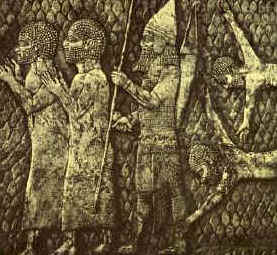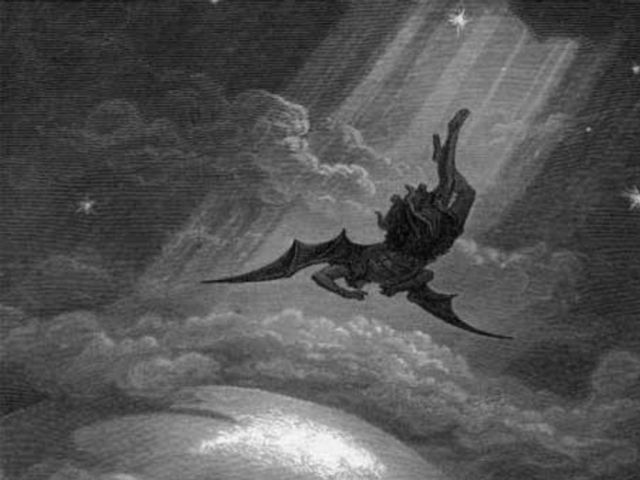*Each of these religions has sects with differing beliefs. The description given here focuses on the core beliefs of each religion. Other major religions, such as Judaism, could be discussed, but for brevity, we have chosen these.
Hinduism and its beliefs

Most Hindus worship one Being of ultimate oneness (Brahman) through infinite representations of gods and goddesses. These various manifestations of gods and goddesses become incarnate within idols, temples, gurus, rivers, animals, etc. Hindus believe their position in this present life was determined by their actions in a previous life. Hinduism therefore provides a possible explanation for suffering and evil in this life. If a person’s behavior before was evil, they might justifiably experience tremendous hardships in this life. Pain, disease, poverty or a disaster like a flood is deserved by that person because of their own evil actions, usually from a previous lifetime. A Hindu's goal is to become free from the law of karma...to be free from continuous reincarnations. Only the soul matters which will one day be free of the cycle of rebirths and be at rest. Hinduism gives a person freedom to choose how to work toward spiritual perfection. There are three possible ways to end this cycle of karma: 1. Be lovingly devoted to any of the Hindu gods or goddesses; 2. Grow in knowledge through meditation of Brahman (oneness)...to realize that circumstances in life are not real, that selfhood is an illusion and only Brahman is real; 3. Be dedicated to various religious ceremonies and rites.
New Age and its beliefs
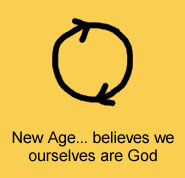
New Age promotes the development of the person's own power or divinity. When referring to God, a follower of New Age is not talking about a transcendent, personal God who created the universe, but is referring to a higher consciousness within themselves. A person in New Age would see themselves as God, the cosmos, the universe. In fact, everything that the person sees, hears, feels or imagines is to be considered divine. Highly eclectic, New Age presents itself as a collection of ancient spiritual traditions. It acknowledges many gods and goddesses, as in Hinduism. The Earth is viewed as the source of all spirituality, and has its own intelligence, emotions and deity. But superseding all is self. Self is the originator, controller and God of all. There is no reality outside of what the person determines. New Age teaches a wide array of eastern mysticism and spiritual, metaphysical and psychic techniques, such as breathing exercises, chanting, drumming, meditating...to develop an altered consciousness and one's own divinity. Anything negative a person experiences (failures, sadness, anger, selfishness, hurt) is considered an illusion. Believing themselves to be completely sovereign over their life, nothing about their life is wrong, negative or painful. Eventually a person develops spiritually to the degree that there is no objective, external reality. A person, becoming a god, creates their own reality.
Buddhism and its beliefs
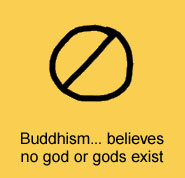
Buddhists do not worship any gods or God. People outside of Buddhism often think that Buddhists worship the Buddha. However, the Buddha (Siddhartha Gautama) never claimed to be divine, but rather he is viewed by Buddhists as having attained what they are also striving to attain, which is spiritual enlightenment and, with it, freedom from the continuous cycle of life and death. Most Buddhists believe a person has countless rebirths, which inevitably include suffering. A Buddhist seeks to end these rebirths. Buddhists believe it is a person's cravings, aversion and delusion that cause these rebirths. Therefore, the goal of a Buddhist is to purify one's heart and to let go of all yearnings toward sensual desires and the attachment to oneself. Buddhists follow a list of religious principles and very dedicated meditation. When a Buddhist meditates it is not the same as praying or focusing on a god, it is more of a self-discipline. Through practiced meditation a person may reach Nirvana -- "the blowing out" of the flame of desire. Buddhism provides something that is true of most major religions: disciplines, values and directives that a person may want to live by.
Islam and its beliefs
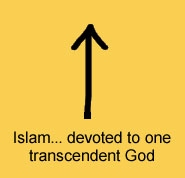
Muslims believe there is the one almighty God, named Allah, who is infinitely superior to and transcendent from humankind. Allah is viewed as the creator of the universe and the source of all good and all evil. Everything that happens is Allah's will. He is a powerful and strict judge, who will be merciful toward followers depending on the sufficiency of their life's good works and religious devotion. A follower's relationship with Allah is as a servant to Allah. Though a Muslim honors several prophets, Muhammad is considered the last prophet and his words and lifestyle are that person's authority. To be a Muslim, one has to follow five religious duties: 1. Repeat a creed about Allah and Muhammad; 2. Recite certain prayers in Arabic five times a day; 3. Give to the needy; 4. One month each year, fast from food, drink, sex and smoking from sunrise to sunset; 5. Pilgrimage once in one's lifetime to worship at a shrine in Mecca. At death -- based on one's faithfulness to these duties -- a Muslim hopes to enter Paradise. If not, they will be eternally punished in hell. For many people, Islam matches their expectations about religion and deity. Islam teaches that there is one supreme God, who is worshiped through good deeds and disciplined religious rituals. After death a person is rewarded or punished according to their religious devotion. Muslims believe that giving up one’s life for Allah is a sure way of entering Paradise.
Christianity and its beliefs

Christians believe in a loving God who has revealed himself and can be known in a personal way, in this life. With Jesus Christ, the person's focus is not on religious rituals or performing good works, but on enjoying a relationship with God and growing to know him better. Faith in Jesus Christ himself, not just in his teachings, is how the Christian experiences joy and a meaningful life. In his life on Earth, Jesus did not identify himself as a prophet pointing to God or as a teacher of enlightenment. Rather, Jesus claimed to be God in human form. He performed miracles, forgave people of their sin and said that anyone who believed in him would have eternal life. He made statements like, "I am the light of the world; he who follows me will not walk in darkness, but will have the light of life." (John 8:12) Christians regard the Bible as God's written message to humankind. In addition to being an historical record of Jesus' life and miracles, the Bible reveals God's personality, his love and truth, and how one can have a relationship with him. Whatever circumstances a Christian is dealing with in their life, the Bible teaches that they can confidently turn to a wise and powerful God who genuinely loves them. They believe that God answers prayer and that life takes on meaning as they live to honor him.
How distinct are these major religions?
In looking at these major belief systems and their views of God, we find tremendous diversity:
- Hindus acknowledge multitudes of gods and goddesses.
- Buddhists say there is no deity.
- New Age followers believe they are God.
- Muslims believe in a powerful but unknowable God.
- Christians believe in a God who is loving and approachable.
Are all religions worshiping the same God? Let's consider that. New Age teaches that everyone should come to center on a cosmic consciousness, but it would require Islam to give up their one God, Hinduism to give up their numerous gods, and Buddhism to establish that there is a God.
The world's major religions (Hinduism, New Age, Buddhism, Islam, following Jesus Christ) are each quite unique. And of these one affirms that there is a personal, loving God who can be known, now in this life. Jesus Christ spoke of a God who welcomes us into a relationship with him and comes along side us as a comforter, counselor and powerful God who loves us.
In Hinduism a person is on their own trying to gain release from karma. In New Age a person is working at their own divinity. In Buddhism it is an individual quest at being free from desire. And in Islam, the individual follows religious laws for the sake of paradise after death. In Jesus' teaching, you see a personal relationship with a personal God -- a relationship that carries over into the next life.








